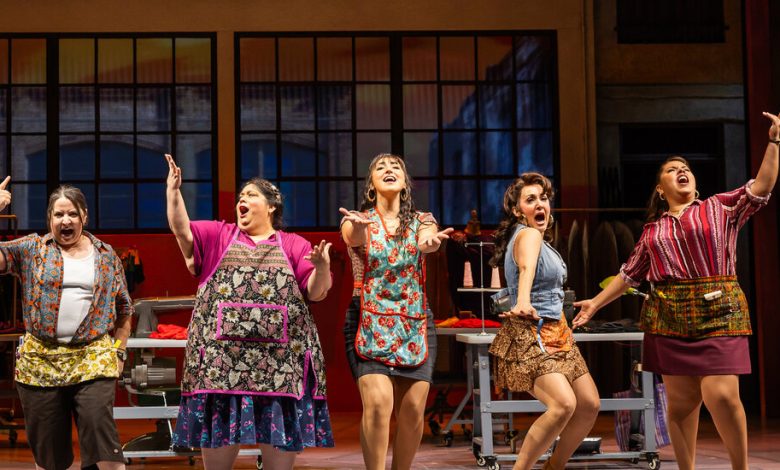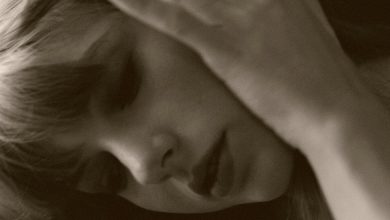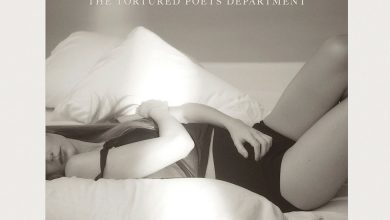‘Real Women Have Curves’ and ‘Heart Sellers’: Snapshots of Immigrant Lives

Body positivity was not at all the cultural vibe in 1990, when Josefina López’s play “Real Women Have Curves” was new. There was a rebelliousness to its climactic strip-down scene, in which a group of Latinas sewing dresses in a roasting-hot Los Angeles factory peel off layers of their clothing and shed a bit of shame, reveling in their lived-in bodies.
In the 2002 film adaptation starring America Ferrera, the scene is similarly feel-good — a refutation of everything the women know to hate about the way they look, because the world around them reinforces their self-loathing every day.
In the new musical adaptation currently making its world premiere at the American Repertory Theater in Cambridge, Mass., under the direction of Sergio Trujillo, the scene becomes a skivvies-clad, song-and-dance display of female empowerment. A dressmaker’s dummy, tiled with mirrors, is lowered like a disco ball, and the show’s title figures in the lyrics. It’s an upbeat crowd-pleaser of a number.
Yet in a musical that pushes body image to the periphery, bursting into defiant song about it feels oddly out of place. With a book by Lisa Loomer, music and lyrics by Joy Huerta and Benjamin Velez, and additional material by Nell Benjamin, this ungainly iteration of “Real Women Have Curves” is primarily interested in the tensions and vulnerabilities of immigrant life.
Based on both the play and the movie (which has a screenplay by López and George LaVoo), the musical is set in the summer of 1987, during the Reagan-era amnesty for longtime undocumented immigrants — a potent historical hook. Ana Garcia (Lucy Godínez), the show’s 18-year-old heroine, is an American citizen, but she is the only one in her Mexican American family who is.
She is the only citizen, too, among the employees at the small dress factory that her sister, Estela (Florencia Cuenca), owns, where their mother, Carmen (Justina Machado), works as well. (Trujillo, who is also the choreographer, has made the women’s sewing rhythms some of the show’s most graceful movement.)
Freshly graduated from high school, trying to reconcile personal ambitions with familial obligations, Ana is juggling her job at the factory with an internship at a local newspaper. She has yet to break it to her parents that Columbia University has not only accepted her but also offered her a full scholarship. She is correct that her mother will be opposed to her leaving.
Godínez is a charming Ana, with a lovely, strong, delicate voice and the charisma and presence to lead a musical. Ana’s slightly screwball chemistry with Henry (Mason Reeves), an appealingly nerdy fellow intern at the paper, is just right.
So is the friction between her and her mother, who wants Ana to put the family first at all times. Unlike the movie, which demonized Carmen, making her a figure of absurdity and ridicule, the musical has great sympathy for her. Machado imbues her with such acuity and dignity that it seems entirely out of character when Carmen, at 51, tells her co-workers she thinks she’s pregnant — the setup for a comic song about menopause.
As for Raúl (Edward Padilla), an important presence in the movie, the musical has so sidelined him that he’s the last to hear about Ana’s chance at Columbia. In such a female-centered show, that puts him in the bizarre dramaturgical position of being a kind of deus ex machina as he bestows his blessing.
What suspense there is in this musical isn’t about Ana’s future. It’s about Estela, her dryly funny older sister, who is ineligible for amnesty because of a minuscule run-in with the law years ago — a lobster was involved — and especially about Izel (Satya Chávez), an undocumented recent arrival who works at the factory.
Halfway through the show, when Izel is taken by the authorities and in peril of being deported, Ana embarks on a high-stakes, clock-is-ticking hero quest to find and save her. Chávez has an exquisite voice and real magnetism; we care instantly about Izel’s fate. But Izel, we belatedly learn, is 17, and Chávez, an adult, is not believable as an adolescent. Still, the plot strand is strong.
Weaving all of these strands together is what this musical’s creators have trouble with — that and figuring out what’s worth keeping in a show that runs two hours and 40 minutes and wants to be too many things at once. Lines of dialogue that sound like political point-making could do with cutting: “You have to be strong to live my life,” for example, or “I can take up space!,” which is not a terribly 1987 thing to say.
With its blend of mariachi music and American musical theater stylings (the music director is Roberto Sinha), the score suggests the duality of its characters’ lives, albeit with some clunky lyrics (“She sees a child/but I’m so much more/and I need to go/if I want to soar”) and without any tunes that will lodge in your head.
On a set by Arnulfo Maldonado at the Loeb Drama Center, with costumes by Wilberth Gonzalez and Paloma Young, lighting by Natasha Katz and richly colorful video by Hana S. Kim that brings a lot of the show’s California flavor, “Real Women Have Curves” has a highly polished look. It feels, though, very much like a work in progress.
Across the river in Boston, at the Calderwood Pavilion, Lloyd Suh’s beautiful two-hander, “The Heart Sellers,” is a far more affecting snapshot of immigrant life. The title is a play on the Hart-Celler Act of 1965, which did away with immigration quotas that had vastly favored white immigrants.
Directed by May Adrales for the Huntington, “The Heart Sellers” unfolds eight years later, on Thanksgiving Day in an unnamed American city. Luna (Jenna Agbayani), who is from the Philippines, and Jane (Judy Song), from Korea, have come there as plus-ones, essentially: married to young doctors in the same residency program who are working on the holiday.
But the women are strangers to each other, or they were until they found themselves at the supermarket, looking at turkeys, and Luna took the leap of inviting Jane to her studio apartment. (The realistic ’70s set is by Junghyun Georgia Lee.) Each is 23 and desperately lonely, Luna garrulously so, Jane more guardedly. When Luna offers her some wine, Jane’s first impulse is to be a well-behaved wife and abstain, as her husband would wish.
Gentle and frequently comic, this is the how-we-met story of two women from very different cultures trying in very different ways to learn the unfamiliar culture they’re now living in. Luna, an avid follower of the news, has no idea how to cook the turkey she just bought, but luckily Jane is a devoted viewer of Julia Child.
“Not just Julia Child, everything television, I watch,” Jane says. “All day. ‘Price Is Right.’ ‘Young and the Restless,’ ‘Sanford and Son,’ Walter Cronkite, Archie Bunker, yes? ‘Sesame Street.’ Husband work. No friends. So. I am just same like you.”
Politically astute and threaded with subtly devastating lines, “The Heart Sellers” is about intelligent, curious, creative women who find themselves bereft in a new country — where they recognize something in each other, and cheer each other on.
Real Women Have Curves
Through Jan. 21 at the Loeb Drama Center, Cambridge, Mass.; americanrepertorytheater.org. Running time: 2 hours 40 minutes.
The Heart Sellers
Through Dec. 23 at the Calderwood Pavilion, Boston; huntingtontheatre.org. Running time: 1 hour 25 minutes.



